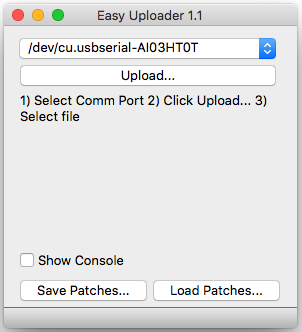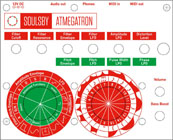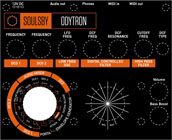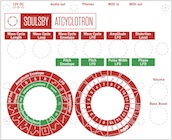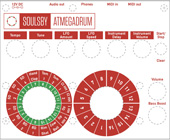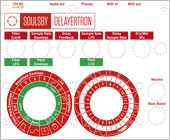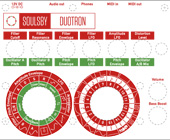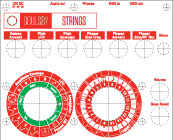Uploading new software to the Atmegatron is very easy and adds a whole new dimension to your synth. Just follow these simple steps. Using the Easy Uploader, it only takes a matter of seconds to upload different software versions
STEP 1 – Install the programmer cable |
|||||||||
|---|---|---|---|---|---|---|---|---|---|
| The Atmegatron uses an FTDI programmer cable to upload new software to its microcontroller. Programmer cables can be purchased from the web store. Download and install the appropriate drivers. This is important, even if your computer thinks it has recognised the cable.
OSX FTDI Driver (10.9 and above) If your operating system isn’t listed, please search the FTDI website. Next insert the programmer cable into the USB of your computer and the 6 pin header of the Atmegatron. The black cable should be on the left when viewed from above. Slide the programmer switch on the Atmegatron to the left (when viewed from above).
|
|||||||||
STEP 2 – Install Easy Uploader |
|||||||||
| The Easy Uploader is the app used to upload software to the Atmegatron. Download the appropriate file and install.
Easy Uploader v1.1 for OSX (10.9 to 10.13) Once installed, run the app (making sure the programmer cable is already connected. Once the software has booted, select the COMM Port of the programmer cable from the combo box. It is often the bottom option.
|
|||||||||
STEP 3 – Upload the software |
|||||||||
| Click the Upload… button. Select the .hex file which you wish to install. The .hex files are available below. The software takes 20-30 seconds to upload. Once completed flick the programmer switch back again, to enable the MIDI ports. You can now remove the programmer cable.
If you have any issue uploading software, please check the “show console” box, then copy and paste the text in the console window to a new thread on the Soulsby Synths forums. Each software version has it’s own overlay. These can be downloaded and printed out, by right clicking the thumbnail. 3 software versions have professionally printed overlays, which are available from the web store. |
|||||||||
Atmegatron Software |
|||||||||
|
Atmegatron Librarian Software |
|
|---|---|
|
The Atmegatron Librarian software allows the patches and user waveforms to be transferred to and from the synth. It also allows user waves to be created from .wav files or drawn. The entire memory (6 user waves and 16 patches) can be transferred to and from the synth and saved to hard disk.
Atmegatron Librarian 2-0 (64 bit Windows) |
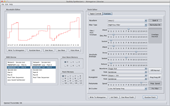 |
Manuals |
|
| Atmegatron Manual v2-1 |
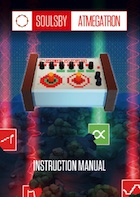 |
| Odytron Manual |
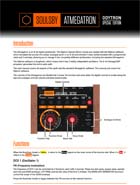 |
Atmegadrum Wavetable Builder |
|
| It is possible to use your own samples in the Atmegadrum. Use the Atmegadrum Wavetable Builder to do this. Unfortunately it is only for Windows at the moment and only a Beta version. Samples must be 8 bit and mono. 8kHz is the recommended sample rate. You can use something like Audacity to convert your samples. | |
Eeprom Converter |
|
| Atmegatrons with serial numbers less than 1000 come loaded with Atmegatron software versions 1.2-1.4 (depending on age). These software versions store the patches and settings in a different manner. To make your patches and settings usable with all the latest software versions on this page, first upload the Eeprom Converter below. Upload it in the usual way via Easy Uploader. Once it has uploaded, the Atmegatron should make tone. Then upload the latest Atmegatron software above via the Easy Uploader and your unit will have the latest software plus all your patches still in tact. This only needs to be done once and is only for serial numbers less than 1000. | |
Source Code |
|
| All Atmegatron source code is open source and can be found on Github. Some audio engines are yet to be converted to the new libraries and will be added to Github in the near future once they have been converted. These are: Atmegadrum, Atcyclotron, Duotron and Delayertron. | |
Archive |
|
Older versions of Atmegatron audio engines are available for download here. This section is still in development.
|
Credits
- Delayertron: many thanks to Adventure Kid for his amazing free wavetables.
- Strings: many thanks to Jan Ostman for his fantastic open source String machine which provided several key functions.
- Alternative Atmegatron: many thanks to Rio Rattenrudel for his excellent work on this.


